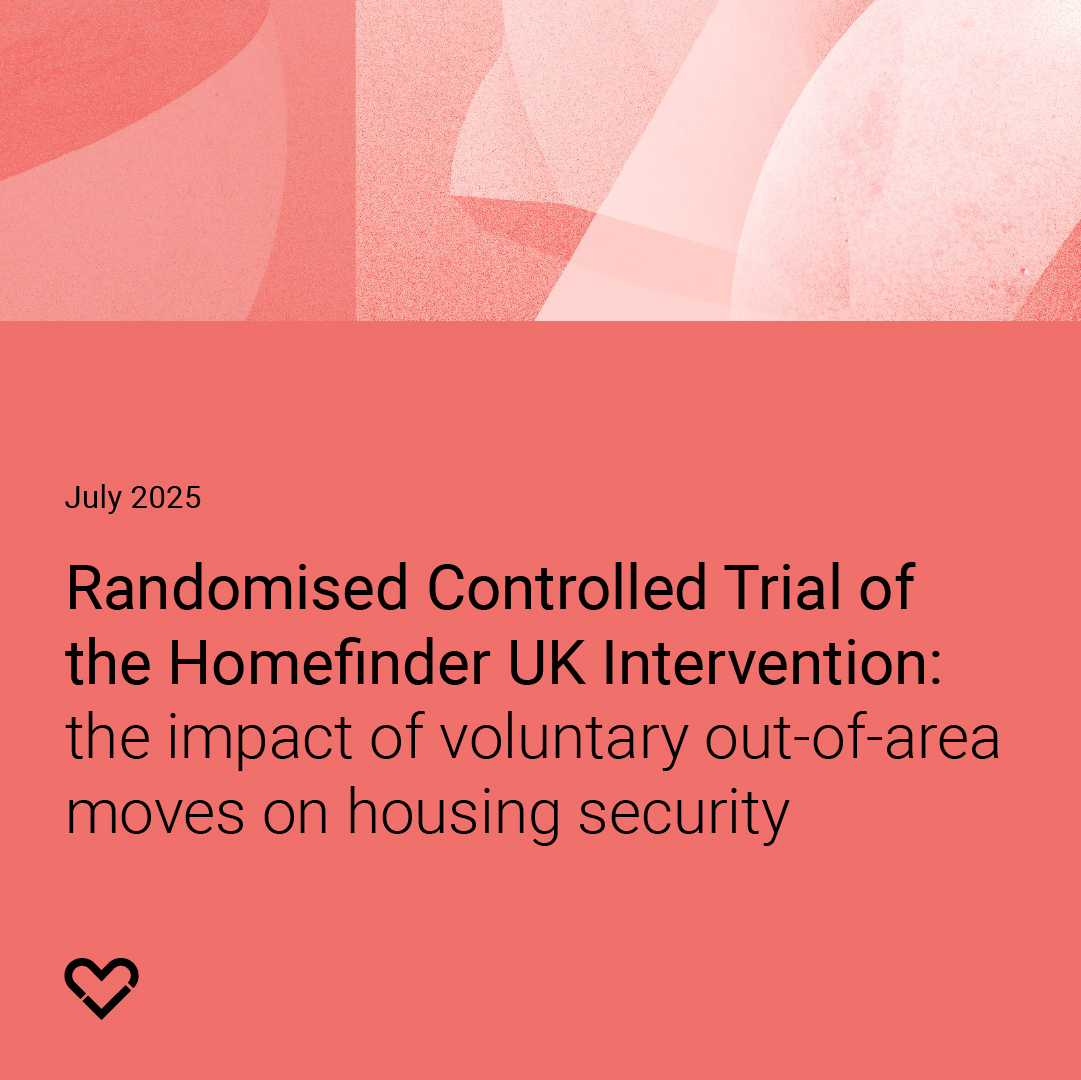European Journal of Homelessness: Accelerating Learning: the First Randomised Controlled Trials
Outline of the study
This groundbreaking paper documents the first randomised controlled trials (RCTs) conducted in UK homelessness policy. This marked a historic shift toward evidence-based practice and addresses a critical gap in the UK evidence base, which previously represented less than 7% of global effectiveness studies carried out globally on homelessness interventions.
The paper reflects on three pioneering RCT studies launched by the Centre for Homelessness Impact and academic partners: the Personal Futures Grants provided £2,000 cash transfers to people in temporary accommodation; Homefinder UK supported voluntary out-of-area moves; Moving On compared the impact of settled versus temporary accommodation during COVID-19.
Findings in brief:
- There are very significant evidence gaps in relation to homelessness interventions. 70% of homelessness intervention categories have been evaluated fewer than 10 times and most remain untested. Commonly used approaches like soup runs and reconnections lack robust causal evidence of their effectiveness
- International evidence from 165 studies across 56 programmes globally indicates the benefits of cash transfers in terms of improving household expenditure, education, health and nutrition
- The three studies demonstrate the feasibility of conducting RCTs in relation to homelessness interventions . However, they also highlight potential implementation barriers around recruiting local authorities to participate in RCTs and frontline staff reservations about randomisation and operational issues.
Recommendations in brief:
- Invest in relationships within the homelessness sector, to understand challenges and realities of working with people experiencing homelessness and to identify promising practice and harness opportunities
- Build capacity in the academic sector - combining local and international homelessness expertise and learning, to adapt and test interventions in UK contexts
- Continue to explore and address ethical considerations relating to RCTs
- Explore strategies to increase recruitment and retention in RCTs. This will include engaging and securing buy-in from staff at all levels of organisations
- Develop locally appropriate data collection tools and processes suited to UK homelessness systems.
No items found.





.jpg)

